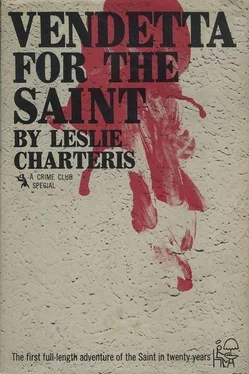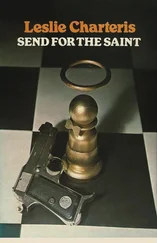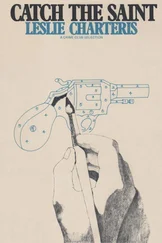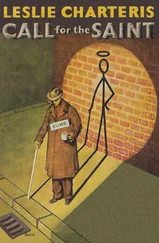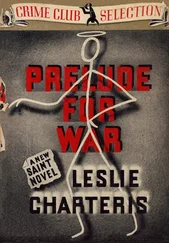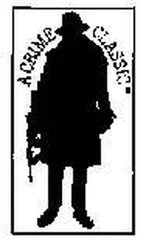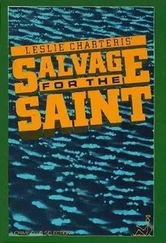With or without the reassurance of such legalistic argument, some of the deployed soldiers were already returning the fire. The house promptly sparkled with more flashes as its occupants accepted the challenge. Bullets whipped leaves from the trees and keened away in plaintive ricochets. Someone turned a spotlight on the building, and before it was shot out they could see that most of the heavy shutters on the windows were open for an inch or two to provide gun slits, and most of them seemed to be in use.
“Very nice,” Olivetti said, crouching beside Simon and Ponti, “You ask me to help you make a raid on some criminals, but you did not tell me we should be fighting a minor battle.”
“Mi despiace, Commandante,” Ponti said. “I did not plan it this way.”
“You are sorry? This is the best thing that could have happened! In the summer no skiing, and all they do is chase girls and drink. We shall sweat some of the wine out of them tonight! All I want to know is in what condition you want those men inside the house. If it is dead, it will be easy. Only there will be a certain amount of mortar fire necessary, and before entering rooms we would roll in a grenade or two. That way, there may be very few prisoners.”
“There are some that I want alive,” Ponti said. “The leaders only. The rest, your soldiers can practise their training upon, and save the courts much useless expense. But I want the men at the top, to identify them and bring them to a public trial which will focus the attention of the whole country. If they are only killed here they will become martyrs: the lesser leaders will take over, and the whole organization will soon be flourishing again.”
Simon thought of reminding them that Gina Destamio might also be in the house, for all he knew. But if she were, the mafiosi themselves would protect her as much as they could, if only until they could use her as a hostage. And as a mere possibility it was too speculative to justify holding up the assault.
“That is more difficult, but we can try,” Olivetti was saying. “I will blow open the front door and the ground floor windows, and we will rush them from three directions. We shall have some casualties, but—”
Suddenly headlights blazed on the far side of the house, and a car roared around the driveway and careened into the road. It was closely followed by another. Both were large sedans and apparently well manned, for their windows blazed with a crackle of small arms.
“Aim for the drivers!” bellowed the Major, in a voice that could be heard easily above the rising crescendo of gunfire. “Then we can take the others alive!”
The leading car drove straight at the front of the army truck which had been strategically parked across the road, without slackening speed, smashed into it, and burst into flame. Frantic men tumbled out and stumbled away from the flickering light. The second car braked violently, but not enough to lose all momentum as it crashed into the rear of the first. It then became clear that the whole sequence was deliberate: the first impact had slewed the truck around enough to leave a car’s width between its bumper and the bordering stone wall, and the second car was now ramming the burning wreck of its companion through the gap.
Soldiers were running in from all sides now, firing as they came. It seemed impossible that the second car could still move: two of its tires were flat, and gasoline was pouring from its tank. Yet its rear wheels spun and gripped and it managed somehow to plough on, pushing the first car through with a horrible groaning and clanking of metal and making an open path for itself.
“Give me that!” roared the Major, and snatched an automatic rifle from a trooper.
He scarcely seemed to aim, but the gun barked five times and glass flew from the driver’s window. The man slumped over the wheel, and the car careered wildly down the road and smashed into a tree. Two passengers scrambled out and fled into the darkness.
“I want every one of those thugs,” Olivetti shouted. “But only wounded. They can recuperate in a prison hospital.”
“I don’t think any of the leaders were in those cars,” Simon said, coming up beside him. “They were only creating a diversion or clearing a way. We must look out for another break.”
The accuracy of his hunch was proven at that instant by the black bulk of a third automobile that surged out of the driveway. It had obviously been parked around the same angle of the building as the first two cars, in a courtyard probably flanked by former stables, and its occupants had been able to embark with impunity during the distraction caused by the first sortie. In the light of the burning wrecks Simon recognized the car that had tried to chase him down the road after his escape: it had reminded him then of a bootlegger’s limousine from the brawling days of Prohibition, and this resemblance turned out to be more than superficial. As it plunged forward the soldiers had a perfect target, and streams of automatic fire converged on it; but the windows were all shut and there were no answering shots.
“It’s bullet-proof!” the Major howled in frustrated rage. “The tires — shoot off the tires!”
But even there the bullets had no effect: the tires must have been solid rubber. Not designed to give a featherbed ride, perhaps, but an excellent insurance against inopportune deflation. The car aimed at full speed for the space between the wall and the interlocked truck and trail-blasting sedan, and hurtled through with only a scraping of fenders. A storm of bullets dimpled its high square stern but did not penetrate. It rocketed away down the road.
“Tenente Fusco, take my scout car and get after that thing!” yelled the Major, jumping up and down with wrath. “Stop it with grenades if you can, but at least stay with it and keep in touch with me by radio. You others — how much longer must I wait for you to clean out that rats’ nest?”
Men with trained reflexes leapt obediently to their assignments. A mortar, already ranged in, exploded a shell against the front of the building, and a yawning hole appeared where one of the shuttered windows had been. The scout car was already bouncing on to the road when Simon grabbed hold of Ponti, who seemed momentarily petrified with indecision as to which unit he should be joining.
“Come with me!” snapped the Saint. “The soldiers will take care of the house — but I bet nobody is left there who would interest you much.” He hustled the dazed detective into a run as he talked. “The big shots are in the car that got away — and the Bugatti has more chance of catching it than a Fiat.”
The Bugatti growled with delight as he aroused it to life again, and as soon as Ponti was beside him he slammed it forward in a bank-robber’s take-off, using the violent acceleration to swing the doors shut. He went on to justify his boast of its speed by thundering past Lieutenant Fusco’s command car while still in third gear, turning to wave mockingly as he went by.
The escaping limousine, for all its armored weight and overworked springing, was harder to catch, thereby vindicating at least a part of the Saint’s prognosis, but after several minutes he caught it in his headlights as he came around a corner. As he started to overhaul it he saw something else, and switched his foot abruptly to the brake as little tongues of flame spat towards him and were followed by the whip-crack reports of cordite.
“Very neat,” Simon said. “Real gang-war stuff. There is a firing port just under the rear window, I saw the gun muzzle when it poked out. Luckily the road is too bumpy for them to have much chance of scoring at this range, but they could do better if we came much closer. Now we shall just have to keep them in sight from a safe distance while you think of some plan to stop them.”
Читать дальше
